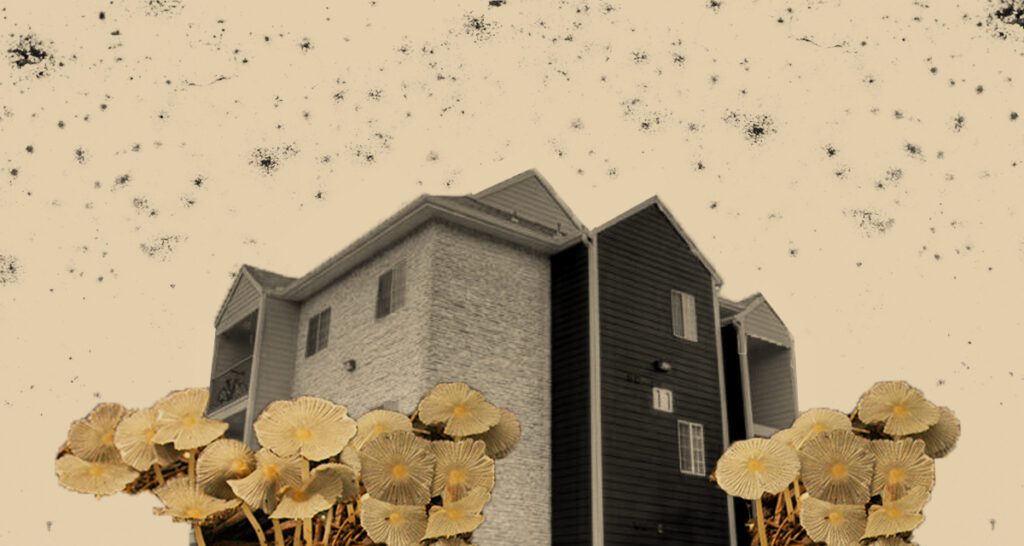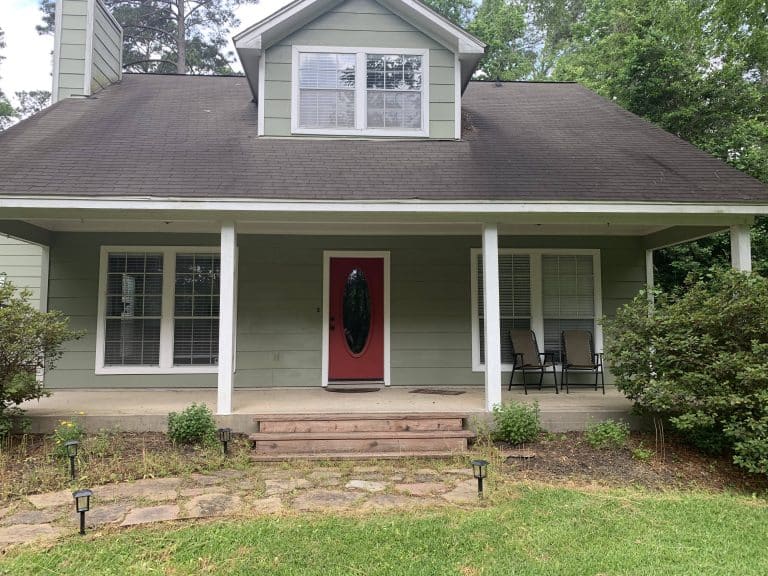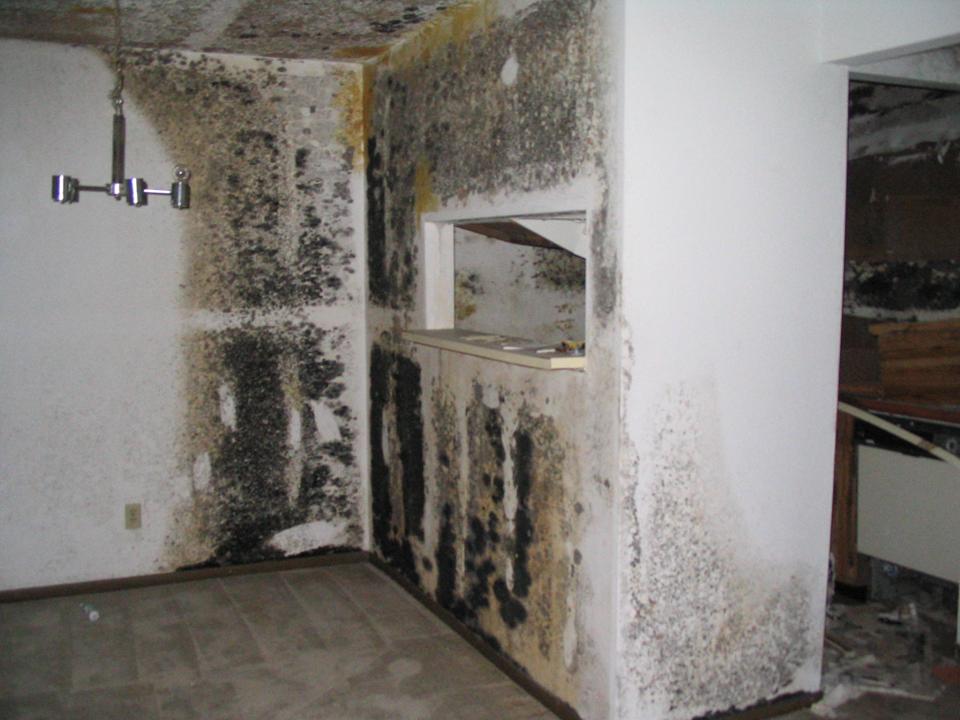Black mold, also known as Stachybotrys chartarum, is a potentially harmful type of mold that has gained a notorious reputation for its potential health hazards. In this article, we will explore whether black mold is a prevalent issue in Houston homes, taking into consideration the climate, building materials, and other factors that can contribute to its growth. Understanding the prevalence of black mold in Houston homes is crucial in order to take the necessary steps to prevent its occurrence and ensure a safe living environment for you and your loved ones.

What is black mold?
Definition of black mold
Black mold, also known as Stachybotrys chartarum, is a type of fungi that thrives in areas with high humidity and moisture. It appears as dark green or black patches and has a distinct musty odor. Black mold can be found both indoors and outdoors and poses various health risks to individuals exposed to it.
How black mold grows
Black mold requires specific conditions to grow and flourish. It typically thrives in areas with excess moisture, such as places with water leaks, high humidity, or inadequate ventilation. When the conditions are favorable, the mold spores land on a surface and start to multiply and spread. The mold feeds on organic materials like wood, drywall, or carpet, breaking them down and causing damage to the affected area.
Health risks of black mold
Exposure to black mold can have detrimental effects on your health. The mold produces mycotoxins, which are toxic substances that can cause allergic reactions and other related symptoms. Prolonged exposure to black mold can lead to respiratory issues, allergic reactions, irritation of the skin, eyes, and throat, headaches, fatigue, and weakened immune system, especially in individuals with pre-existing respiratory conditions or weakened immune systems.
Conditions favorable for black mold growth
Moisture levels
Black mold thrives in environments with high moisture levels. Areas with water leaks, dampness, or excessive humidity provide the ideal conditions for the mold to grow and spread. It is crucial to address any moisture issues promptly to prevent black mold from flourishing.
Temperature
Black mold can grow at various temperatures, but it prefers temperatures between 77 to 86 degrees Fahrenheit (25 to 30 degrees Celsius). This temperature range is commonly found in indoor environments, making homes susceptible to black mold growth if other conditions are favorable.
Humidity
High humidity levels are a significant contributing factor to black mold growth. Relative humidity above 60% creates an environment conducive to mold development. Areas such as bathrooms and basements, where moisture levels and humidity are generally elevated, are particularly prone to black mold infestations.
Poor ventilation
Inadequate ventilation exacerbates moisture-related issues and contributes to black mold growth. Without proper airflow, damp air becomes trapped, creating a breeding ground for mold. Rooms with poor or no ventilation, such as bathrooms or laundry rooms, become susceptible to black mold infestations.
Specific areas of Houston homes prone to black mold
Bathrooms
Bathrooms are notorious for their high humidity levels and frequent water usage, making them one of the primary areas in Houston homes prone to black mold growth. Moisture from showers, baths, and sink usage easily accumulates, providing an ideal breeding ground for mold.
Kitchens
Kitchens, particularly those with poor ventilation or frequent cooking activities, are susceptible to black mold growth. Steam generated from cooking and washing dishes can contribute to increased moisture levels, especially if there are no exhaust fans or proper ventilation systems in place.
Basements
Basements often have higher humidity levels and limited natural light, creating an environment suitable for black mold growth. Underground rooms are prone to moisture problems, such as water seepage through foundation walls or condensation on cold surfaces, leading to mold infestations if left unaddressed.
Attics
Attics can become humid and vulnerable to black mold growth due to poor insulation, inadequate ventilation, or roof leaks. During warm months, an insufficiently insulated attic can trap hot air and moisture, creating the perfect conditions for mold to thrive.
Laundry rooms
Laundry rooms are prone to black mold growth due to the presence of moisture from washing machines and dryer vents. If the room lacks proper ventilation or experiences water leaks, it becomes an attractive environment for mold colonies to develop.
Signs of black mold in Houston homes
Visible black spots
One of the most obvious signs of black mold is the appearance of dark green or black spots on walls, ceilings, or other surfaces. These spots may appear fuzzy or slimy and can spread quickly if left unaddressed. It is essential to identify and address any visible mold growth promptly.
Musty odor
Black mold has a distinct musty odor that is often described as earthy or damp. If you detect an unusual, persistent odor in your home, particularly in areas prone to moisture or humidity, it may be an indication of hidden mold growth.
Water damage
Water damage, such as leaks or past flooding, is a prime contributor to black mold growth. If your home has experienced any form of water damage, it is crucial to thoroughly inspect the affected areas to identify any potential mold growth.
Allergic reactions
If you or your family members experience allergic reactions that worsen when you are indoors, it could be a sign of black mold. Symptoms may include sneezing, coughing, itchy or watery eyes, nasal congestion, or skin irritation. If these symptoms improve when you leave the house, it may indicate the presence of mold.

Preventing black mold in Houston homes
Controlling humidity levels
Maintaining appropriate humidity levels is crucial in preventing black mold growth. Ideally, indoor humidity should be kept between 30% and 50%. The use of dehumidifiers or air conditioners can help regulate humidity levels, especially in areas prone to excess moisture.
Using exhaust fans
Proper ventilation is essential in areas where moisture is prevalent, such as bathrooms, kitchens, and laundry rooms. Installing and using exhaust fans or range hoods can effectively remove excess humidity and prevent moisture buildup, minimizing the risk of black mold.
Fixing leaks and water damage promptly
Black mold thrives in damp environments, making it imperative to address any leaks or water damage promptly. Inspect your home regularly for signs of leaks or damage, and make repairs as soon as possible to prevent further moisture-related issues and potential mold growth.
Regularly cleaning and maintaining
Regularly cleaning and maintaining your home is an effective way to prevent black mold. Pay close attention to areas prone to moisture, such as bathrooms, kitchens, and basements. Regularly clean and dry these spaces and ensure proper ventilation to discourage mold growth.
Taking precautions during floods or hurricanes
Houston is prone to floods and hurricanes, which can lead to severe water damage and subsequent mold growth. If your home experiences flooding, it is vital to act quickly to dry out the affected areas and properly clean and disinfect them to prevent mold growth and related health risks.
Black mold removal and remediation
Local regulations and guidelines
When dealing with black mold removal and remediation, it is essential to familiarize yourself with local regulations and guidelines. Different states and municipalities may have specific requirements or recommendations for handling and disposing of mold-infested materials. Following these regulations ensures proper and safe mold remediation practices.
Hiring professional remediation services
For extensive or severe black mold infestations, it is highly recommended to hire professional mold remediation services. Experienced professionals possess the expertise, equipment, and knowledge to safely and effectively remove mold from your home. They can conduct thorough inspections, identify the source of the mold, and implement appropriate remediation strategies.
DIY removal techniques
In situations where the mold growth is minimal and confined to a small, manageable area, homeowners may choose to tackle the remediation themselves. However, it is crucial to exercise caution. Wear protective gear, such as gloves and masks, and ensure proper containment and disposal of mold-infested materials. Seek guidance from reputable sources or professionals before attempting DIY mold removal.
Safety precautions
Regardless of the chosen approach, safety should be a priority when dealing with black mold. Minimize exposure to mold spores by wearing appropriate protective gear, such as gloves, goggles, and masks. Properly seal off affected areas to prevent the spread of mold spores to other parts of the home. Ensure proper ventilation to disperse airborne spores and use appropriate cleaning agents to effectively kill and remove mold.
Health risks of black mold exposure
Respiratory issues
Exposure to black mold can lead to various respiratory issues, particularly in individuals with pre-existing conditions such as asthma or allergies. Inhaling mold spores can trigger coughing, wheezing, shortness of breath, and other respiratory symptoms.
Allergic reactions
Many individuals are allergic to mold, and exposure to black mold can trigger allergic reactions. Common symptoms of mold allergies include sneezing, runny or stuffy nose, itchy or watery eyes, skin rash, and throat irritation.
Irritation of the skin, eyes, and throat
Direct contact with black mold or its spores can cause skin irritation, eye redness or irritation, and throat discomfort. These symptoms can range from mild to severe, depending on the individual and level of exposure.
Headaches and fatigue
Black mold exposure has been linked to symptoms such as headaches and fatigue. Prolonged exposure or sensitivity to mold can lead to chronic fatigue and persistent headaches.
Weakened immune system
Exposure to black mold can weaken the immune system, making individuals more susceptible to respiratory infections, allergies, and other illnesses. Those with compromised immune systems, such as the elderly or individuals undergoing medical treatments, are particularly vulnerable.
Importance of addressing black mold promptly
Preventing further damage
Addressing black mold promptly is essential to prevent further damage to your home’s structure and belongings. Mold can cause irreversible damage to building materials, such as wood or drywall, and may require costly repairs or replacements if left untreated.
Protecting health
Promptly addressing black mold helps protect the health of you and your family. By removing the source of mold and reducing exposure to mold spores, you can minimize the risk of respiratory issues, allergic reactions, and other health problems associated with black mold exposure.
Avoiding more costly remediation
Delaying black mold remediation can lead to more extensive mold growth, requiring more extensive and costly remediation efforts. Addressing the issue promptly can help contain the mold and prevent it from spreading to other areas of your home, potentially saving you significant time, effort, and money in the long run.

Insurance coverage for black mold remediation
Homeowner’s insurance policies
In some cases, homeowner’s insurance policies may provide coverage for black mold remediation. However, coverage can vary significantly, depending on the policy and the circumstances surrounding the mold infestation. It is important to review and understand your insurance policy to determine whether black mold remediation is covered.
Limitations and exclusions
While some homeowner’s insurance policies include coverage for mold remediation, there are often limitations and exclusions. Certain conditions, such as gradual and long-term mold growth or neglecting to address an underlying cause, may not be covered. It is advisable to consult with your insurance provider to understand the specifics of your policy.
Filing a claim
If you believe you have insurance coverage for black mold remediation, it is essential to follow proper procedures when filing a claim. Document the damage, take photographs, and retain any relevant invoices or receipts. Contact your insurance provider promptly to initiate the claims process and seek guidance on the necessary steps to follow.
Seeking professional help for black mold issues
Finding reputable mold inspectors and remediation companies
When dealing with black mold issues, it is crucial to seek assistance from reputable mold inspectors and remediation companies. Conduct thorough research, read reviews, and seek recommendations from trusted sources. Look for professionals with certifications or memberships in recognized mold remediation associations.
Asking for references and certifications
Before hiring a mold inspector or remediation company, ask for references from past clients. Contact these references to inquire about their experience and satisfaction with the services provided. Additionally, ensure that the professionals you choose have the necessary certifications and are knowledgeable about current mold remediation techniques and safety protocols.
Comparing services and costs
When evaluating potential mold inspectors or remediation companies, compare their services, costs, and warranties. Consider the scope of the services offered, the expertise of the professionals, and the reputation of the company. While cost is an important factor, prioritize quality and expertise to ensure effective and thorough mold remediation.

